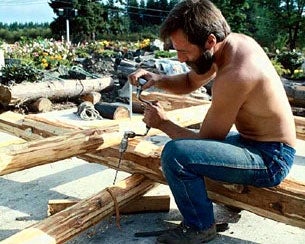MOSCOW—Citing safety concerns as well as the importance of proper craftsmanship, Russian Space Agency officials announced Tuesday a delay of at least six months before carving is completed on the newest Russian space station.

“The two-by-four frame which forms the station’s primary airlock is still in the clamps and hasn’t even been sanded yet,” said Russian Space Agency director-general Yuri Koptev, explaining the delay. “There are also a number of key navigational instruments which we have not yet begun to whittle.”
Originally scheduled for completion this month, the new station ran into difficulties on June 2, when several nails came loose during a routine docking exercise, resulting in an explosion that destroyed the space station’s guidance system and badly injured cosmonaut Nikolai Budarin. The malfunction, which also caused serious damage to the station’s steering thruster, was traced to faulty hammering.
“The nails were not hammered in straight,” Koptev said. “We will pull them all out and do it again.”
Another major setback occurred just two days later, when a pair of vagrants jimmied open the lock on the space station’s main entry hatch and spent the night in it.

“They urinated all over the place,” chief engineer Talgat Musabayev said. “This created serious problems, as the floor had not yet been varnished and sealed, so the urine soaked through and caused a terrible smell. I cannot go in the space station now without covering my nose.”
Musabayev said the agency has requested $3 in additional funding from the Russian government to purchase a pine-scented bathroom spray to combat the urine odor, but the request has not yet been approved.
Despite his frustration, Koptev said the setbacks have taught Russian Space Agency officials much about the construction and maintenance of space environments, knowledge which will help them greatly in future missions. “We may decide to work with clay in the future, so that even if we make many mistakes, we can correct them before the final firing,” he said.
Another breakthrough for the Russian team was last week’s discovery of rigid, circular devices that facilitate the transportation of heavy items. “We used to carry all of our components many miles to the space center in our arms,” Koptev said. “But now, by affixing these round devices to boxes and baskets, we can transport items with far greater ease.”
For reasons of national security, Koptev declined to elaborate on the specifics of the device.







